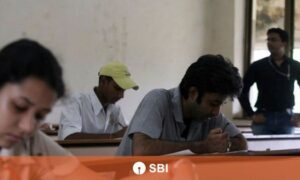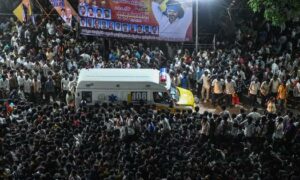
Why do we read poetry? And what does it awaken in us? Perhaps we turn to poems the way we turn to a prayer or a strand of light. Perhaps we evoke our roots at the foot of a poem that grows into our mind. Perhaps we turn to poetry by the same impulse by which man gave birth to god. Standing on this side of the Arabian Sea by the Coast of Malabar, as a child, I stubbornly believed that the hazy grey line I saw far away on the horizon was the island country of Sri Lanka.
The winds blowing in from the sea, be it the Arabian Sea or the Indian Ocean, have a peculiar effect on the sensibilities of the natives, and it is with this sense of ennui that Vidyan Ravinthiran’s first poem in the collection Avidya marks its presence. “As a/ Sri/ Lankan/ Tamil/ I feel strongly /about /three o’clock in the afternoon”. On a first reading, the poem appears to echo the imagist technique of Ezra Pound’s poem “In a Station of the Metro”, but this impression is quickly undone. Unravelling the frame of imagery, Ravinthiran summons the sharp and indelible memory of the Tamil pogrom that engulfed the island nation in 1983 on an afternoon precisely when the clock chimed three.
History and mythology
In the poem, “Your Demon’s Basic”, the poet appears to play with the ideas of otherness and the notions of race and explores how, through the consistent storytelling and mythology, the victor decimates the other while weaving in the narrative of Black July. There’s a deliberate refrain and balance that lends the poem the quality of a political narrative, while preserving its ethnic roots. “Leaving for home/ a goatherd told his scarecrow/to watch out and not just for thieves/ but tigers and demons too/ with emphasis he said/ not puli and muni but pulikili and munikini-/ tigerish tigers and demonic demons. One of each/ creeping in the shade toward their prey/ heard this and were terrified/ by word of beast like them/ in every way but raised to a new power.”
Poem after poem, he delves deep into the core of socio-political history and mythology, effortlessly entwining them with collective memory, shaping poetry into a powerful tool of political statement. Words become symbols that must be decoded, and often they deploy the use of phonetics in a clever way to convey meanings, that one dwells for long at “gilt rimmed tumblers” where orange juice tastes like soluble aspirin. They are testimonies wrapped in the device of language of verse and when broken down, they reveal the gruesome genocide in human history comparable to what was endured by the Jews during the holocaust. Through the many voices that incantate combing the graveyards, there is an unstoppable train of memory that stubbornly refuses to go away and it is only by repeated chanting that one finally burns down the forest of hurt and loss. Racial prejudice is a double jeopardy that eats into the core of existence and one turns rage into a powerful tool of language that at once becomes shield and sword and courses and flames through the pages.
Poems surfacing from deep pools of transgenerational memories turned into relics, they wear the clothes of otherness with an ease only a stranger can, who reminds himself and the world quietly that he lived. These poems also serve as a marker of how inherited memories, ingested and fed on the language of the Gods, see between the lines of disdain where the familiar transforms into an act of resistance and the vocabulary bears the imprint of otherness. In the same breath, one also needs to remember that poetry of survival is also about rejecting the past, for such poetry is destined to walk its lone path and it must travel light without the burden of ancestry pulling it down constantly as the poet says, “Where it didn’t exist, we invented a panchaganam/ dispersed into countless heads, meaning after meaning/ multiplying like the limbs of gods.”
Memories of displacement
Exploring a new form of poetic device in its breathless narration, the posthumously published editorial of Lasantha Wickrematunge, editor of The Sunday Leader, makes its way into a poem titled after the latter, the poem picking up fragments of evidence bearing witness to the brutal war crimes that swept over the island country. “My printed voice/ rose from the grave/ No other profession calls on its practitioners to lay down their lives/ for their art save the armed forces/ and in Sri Lanka, journalism. Countless journalists have been harassed, threatened/ and killed. It has been my honour to belong to all those/ categories and now especially the last.”
There’s a small section of short poems under the title Orts where moon and thirukkural challenge the conventional definitions of how they appear in poetry, stretching out the lengths to the uncharted terrains.
The final poem of the collection, titled “As a Child”, was, coincidentally, the first of Ravinthiran’s poems I encountered after reading his reflective essay in Poetry London. Scarred on face from an accident, as a child, words became my window to the world and to borrow from Ravinthiran’s poem, “…Because my face was not the right face and could not be understood I stood before the mirror” – this poem became a quiet invitation to the layered terrain of his poetic world.
We are all weighed down by the memories of displacement and otherness, yet as we traverse geographies, cultures and histories, something begins to shift. The weight of estrangement transmutes into a quiet strength. Slowly, the otherness no longer feels alien. It comes to roost inside our ribcage like a bird nesting or a cloud drifting, light yet persistent. Sometimes it sings through us, sometimes it takes the shape of poetry. At times, it sits with us in quiet contemplation as we search for the language that anchors our being. It is this otherness and reconciliation that Ravinthiran explores with intensity in his poems steeped in rage, pain, wisdom and a yearning for belonging.
Much like the mythical hero Karna, who forgets the mantra on the battlefield, in a moment of profound self-effacement, the poet seems to lay down his name and become Avidya, not as a denial of knowledge, but as a transcendence of identity itself. It is in this embrace of fluid self that one may finally arrive at a state of light – a truth unburdened by labels, radiant in its formlessness. A compelling chronicler of the political history of the island country and the subcontinent, Avidya is an essential read and a powerful socio-political hymn.
Avidya, Vidyan Ravinthiran, Bloodaxe Books.
This article first appeared on Scroll.in
📰 Crime Today News is proudly sponsored by DRYFRUIT & CO – A Brand by eFabby Global LLC
Design & Developed by Yes Mom Hosting






